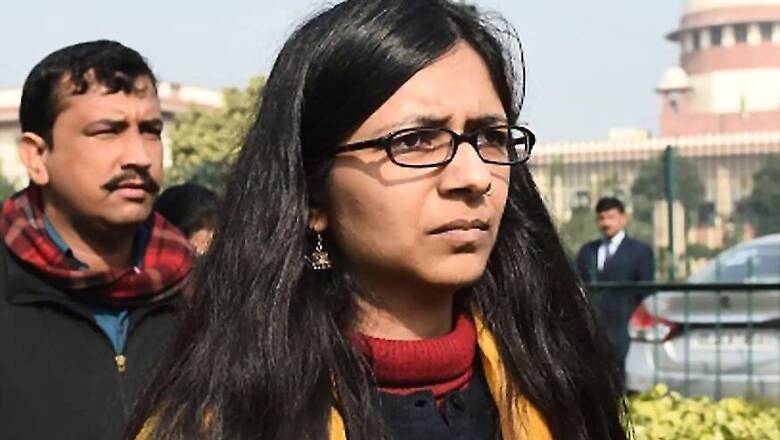
views
New Delhi: Swati Maliwal, the Chairwoman of the Delhi Commission for Women (DCW), has grabbed headlines over the last three years for her spirited defense of death penalty for child rapists, raids on the capital’s red light area to rescue women and resolving complaints of domestic abuse victims. As she completes her term, Delhi Chief Minister Arvind Kejriwal has renewed her posting for a second term.
The fiery DCW Chief spoke to News18’s Uday Singh Rana about her achievements in office, her views on death penalty, why she is a feminist and why India needs to speak to its boys.
When you look back at these three years as DCW Chief, what has been your proudest moment?
I’m proud of the indefinite hunger strike that I did. It was very difficult and not something I thought I was capable of. Just the pain of the many Nirbhayas that I witnessed in three years made me do it. And because of that indefinite hunger strike, many legislative changes took place in this country. Now any person who rapes a child will be given the death penalty within six months. The Prime Minister had to relent and on the tenth day of my indefinite hunger strike, this ordinance was passed.
As well-intentioned as your moves may be, the DCW is still seen as a toothless body. What can you really do to change anything?
Within three years, we’ve got 7,000 FIRs filed against different people on issues of rape and other crimes against women. I don’t think we are a toothless body. We are working day and night. We’ve got two legislative changes effected. The first I’ve already mentioned. We also got the age of the juvenile decreased from 18 to 16 years. DCW is anything but a toothless body. We had summoned the Police Commissioner, who had to give us all the data. All commissions across the country are very powerful. You just have to know how to exercise them.
You have long been an advocate of death penalty but one argument is that there hasn’t been any imperical evidence to prove that the death penalty actually deters a crime. Do you still stand by that view?
I definitely stand by the death penalty and I think there needs to be strong punishment, swiftness of punishment and certainty of punishment when it comes to such crimes. Otherwise, how would you bring about change in a country of 125 crore people? Today people feel they can do anything, they can rape any woman and nothing will be done against them. I think that’s an attitude that we have to change.
You are one of the few politicians in India who are not afraid to call themselves a feminist. What does being a feminist mean to you?
I’m a feminist. What is feminism? Feminism is equality. Just because I am the DCW Chief does not mean I will blindly stand behind all women. There are many women who we have acted against. And if we get a case where a man says a false case has been alleged, we also stand by the man when we are faced with evidence. I also think it is very important that we start talking to our boys. We must begin in our homes and in our schools. That was one of the key focus areas of the Commission’s #RapeRoko movement. We are going into the streets and even getting men to talk to men. For the rape culture to end, we need to involve mean in dialogue as well.
You have been re-instated as the DCW Chief for another three years. What’s next?
I’m grateful to the Chief Minister and Deputy CM for giving our Commission another chance. Next on the cards is ending illegal sex work and human trafficking at GB Road, rehabilitating the women who work there, cracking down on the illegal drug and liquor mafia, ensuring that the law on death penalty is actually implemented, ensuring more fast track courts, ensuring more police resources for women’s safety. We want to bring all the work that we started to a logical conclusion.
















Comments
0 comment